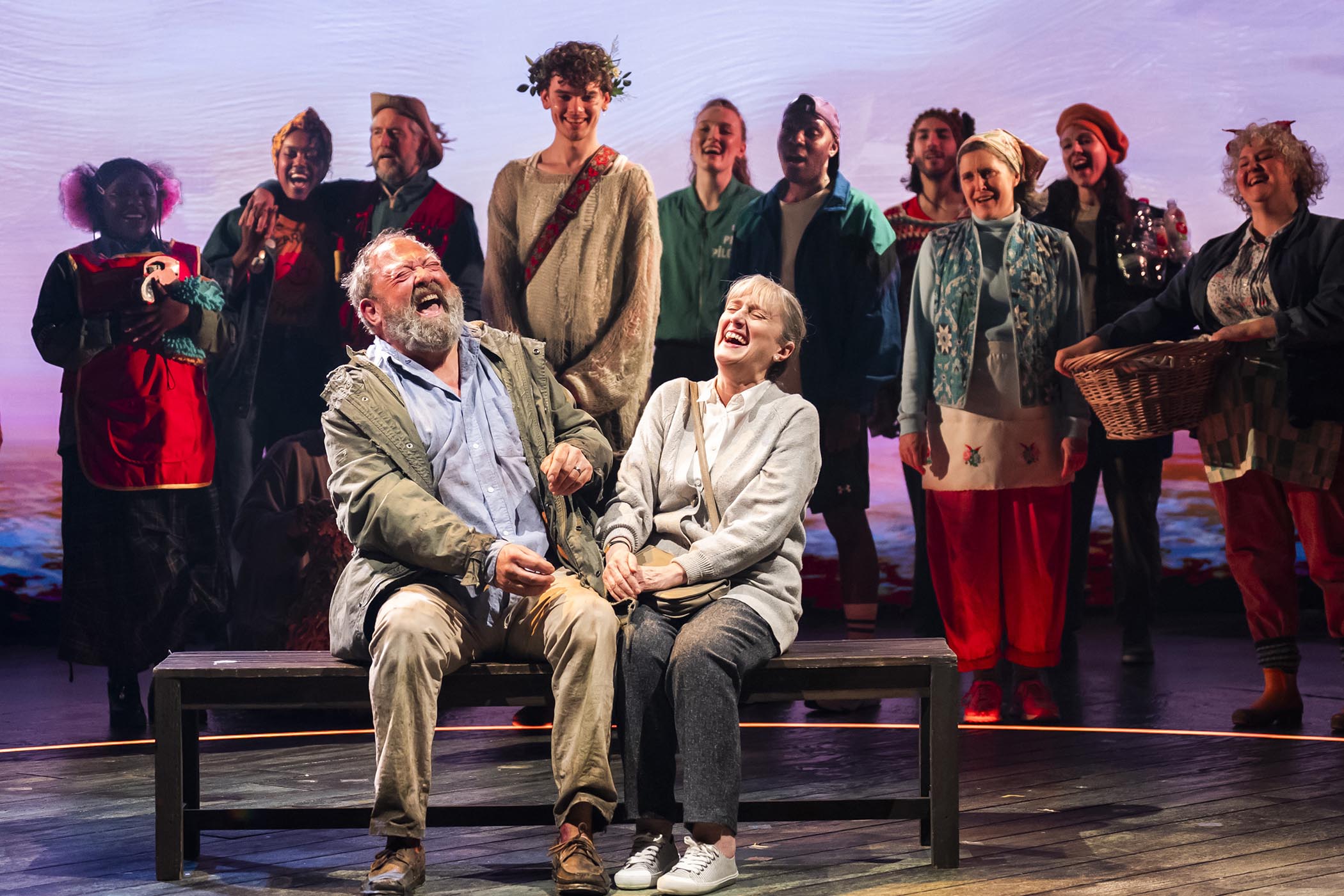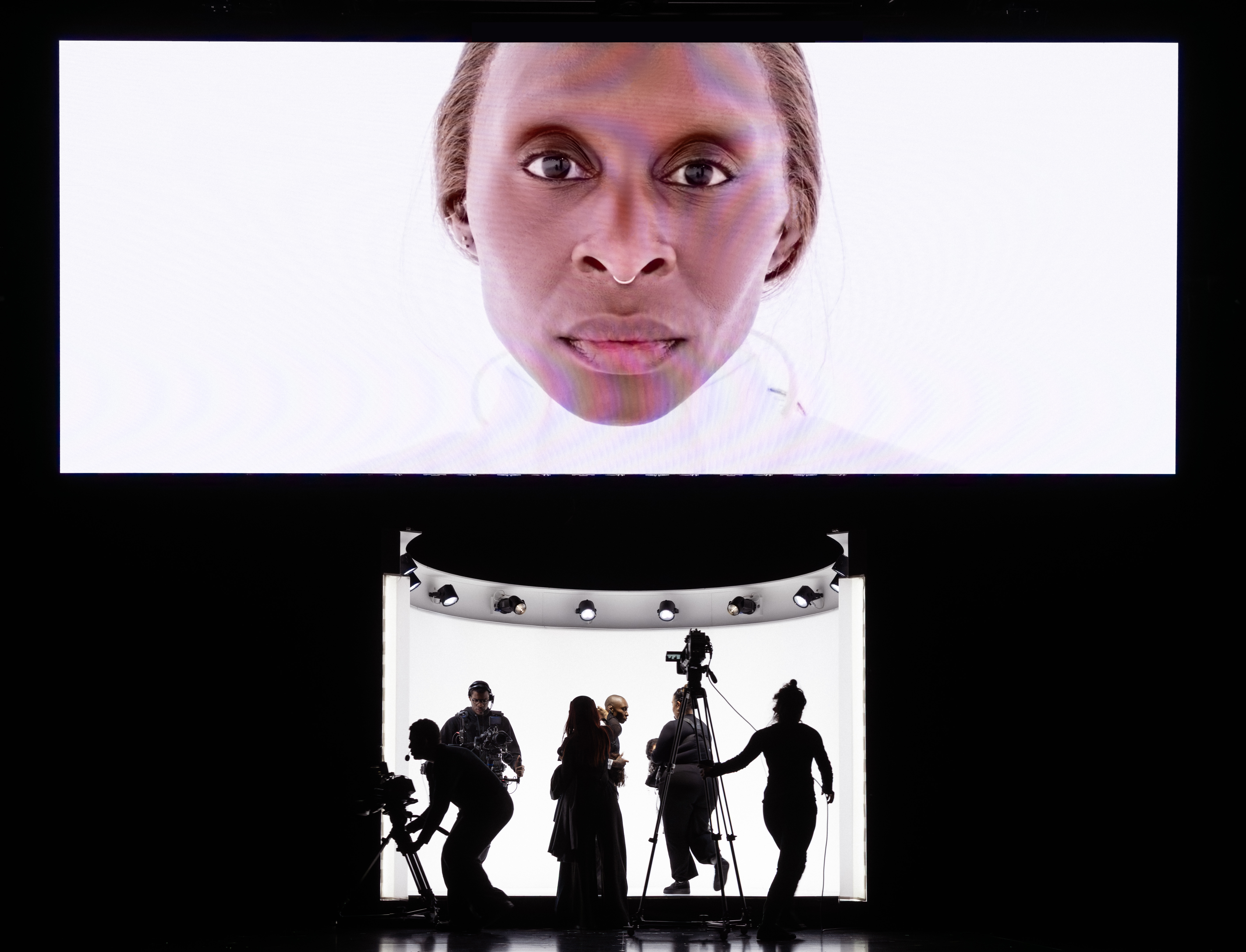Nicôle Lecky, 35, is an actress and writer whose one-woman play Superhoe, a dark comedy about an aspiring singer who turns to sex work, opened at the Royal Court to critical acclaim in 2019: The Observer called it a “galvanic show”. A subsequent adaptation for the BBC, entitled Mood, which Lecky also led, won her two Baftas, including the prestigious prize for best mini-series. Her new BBC series, Wild Cherry, is a dark thriller about ultra-privileged mothers and daughters in a dangerous new era of social media. In it, Lecky plays an American life coach who is the outcast of the mothers group. Lecky has English-Jamaican heritage and grew up in Stratford. She now lives in north London.
Wild Cherry is about how social media exploits young girls, but it also shows how they are unknowingly exploiting themselves while believing they are in control. Where did the idea come from?
One of the really early thoughts I had in wanting to develop this idea was me and all my girlfriends talking about what we would be like if we were 16 now and had social media. I have younger members of my family who are teenage girls and I am just fascinated. It was really important for me that there wasn’t this trope of always being a victim as a teenage girl, because I think that even though you are really vulnerable, you don’t necessarily feel like that; you can actually feel quite powerful.
Were there any particular news stories that informed your research of the girls in the show and the elite school they attend?
There was one about the movement that happened within private schools, called Everyone’s Invited, where teenage girls were speaking about some of the ways they didn’t feel very safe there. There were also stories I read where outsiders had come into schools and exploited teens; where adults and teenagers intersect can be quite dangerous. I don’t have children but if I did I’d be nervous for them to have social media at that age.
The girls in Wild Cherry use a ‘ghost app’ to hide their photos and messages from their parents inside what looks like a calculator. Is that real?
I read an article about ghost apps and downloaded quite a few and was like: “Oh my god.” You would not look at your kid’s phone and think it’s a fake calculator. I query who these are made for, if not teenagers. There was one I went on where I put my old school in and as soon as I did it gave me access to everyone who had joined that app who was at the school now. Isn’t that terrifying?
The mother and daughter relationships in the show are both competitive and affectionate. What were you trying to say about that bond?
I wanted to look at these two different mothers and get under the skin of their parenting styles but also what they are feeling emotionally every day. It was important for me that it was a coming of age for both the mothers and the daughters at different times in their lives. Speaking to women in their fifties about their daughters leaving home and becoming women, and what that makes them feel, is something I was really keen to explore. There’s a moment where Grace says to her mother Lorna, “I’m hot”, and it makes Lorna feel like, where does that leave me?
You dedicated your Bafta to your late mother. Did writing this bring up your relationship with her?
Probably in a way I don’t realise – you’re always writing and wondering where ideas come from. I don’t look at these women and see myself or my life because I come from Stratford in the East End and didn’t grow up in a mansion, so the issues were different, but some of the fighting and bumping heads is a universal feeling.
In Mood you play Sasha, a working-class woman who aspires to make music and discovers the sinister side of influencer culture. What did adapting Superhoe for TV allow you to do with the story?
Superhoe was just me on stage with a microphone and a bit of a set. Doing [Mood] o n television, I got to cast everyone and they became these three-dimensional characters that I could engage with, so it levelled up my performance in a way that was quite exciting. We got to do higher quality versions of the songs and I could be more specific about their genre and style.
Did your TV performance become distinct from the stage show?
It was important to me that they felt similar; I didn’t want to polish it. I wanted Sasha to be this very on-the-front-foot character, because I always felt a turn from the audience in the first five minutes when she’s swearing at her family and going after them. The audience are thinking, “I’m not quite sure we like this person.” It was important in the television version that she’s unlikable, because I think it’s honest.
The show won two Baftas. Has that opened doors for you?
It’s hard to know, but probably. It’s more weird when workmen come to my house and ask: “What are the awards for?” I always find they’re quite proud of me and then I remember, oh, it’s quite good, isn’t it?
There’s lots of discussion about how difficult it is to get TV made, especially in this country. Do awards help?
Definitely. Awards can help, having a name can help, having existing IP rather than an original idea can help. I think it’s kind of a miracle to get anything made. Wild Cherry got green lit right before the writer’s strike so I haven’t really had to get anything made in this current climate where everyone is talking about the tightening of the purse strings.
You’re also appearing in the Noah Baumbach film Jay Kelly, playing a celebrity stylist in a travelling entourage alongside George Clooney, Adam Sandler and Laura Dern. What was that like to make?
It was very surreal for me turning up because I’ve watched these people from when I was young. They had a basketball court on set and I got to play basketball with Adam and George at lunchtime.
Because Adam Sandler loves basketball?
So does George! I don’t know if people know that. He was playing in jeans and they taught me how to do a jump shot. I looked at Thaddea Graham, one of the other actresses, and we were both thinking, what are we up to?
Wild Cherry is on BBC One at 9pm on Saturdays, and on BBC iPlayer
Newsletters
Choose the newsletters you want to receive
View more
For information about how The Observer protects your data, read our Privacy Policy
Photograph by David Reiss for The Observer



